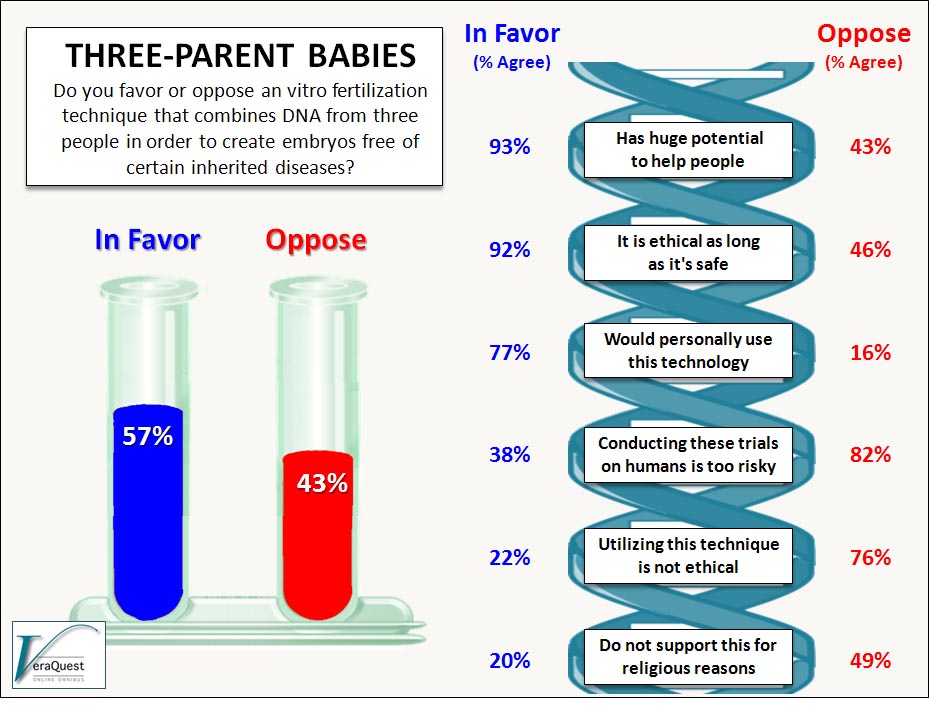A couple weeks ago I read an article on CNN.com about how U.S. health officials are considering approving human trials of an in vitro fertilization technique that combines DNA from three people in order to create embryos free of certain inherited diseases. I was at the same time scared and “wowed”. First, the science of it all and what scientists have been able to achieve is just astounding. Just think of how many people this might be able to help and how many babies might be born healthier. But at the same time, I couldn’t help but think of it as a slippery-slope towards the creation of “designer babies”…which I find to be quite unsettling.
We polled 1,501 U.S. adults on a recent VeraQuest survey to find out Americans’ opinions of this potential three-parent baby in vitro technique. First and foremost, the majority of Americans are in favor of U.S. health officials approving human trials of this technique (57% are in favor of it, while 43% oppose it).

There are a few interesting differences among key demographic groups:
- Younger Americans (18-39, but particularly 18-29 year olds) are more in favor of having the three-parent baby trials approved than Older Americans (40+). In fact, the majority of those 65+ years of age actually oppose it (48% in favor, 53% oppose among this age group).
- Men and Women are both in favor of having human trials of the three-parent baby technique approved, but more Men (61%) are in favor of it than Women (53%).
- Those with and without children in their household are also both in favor of the technique, but those with kids have a stronger majority in favor of it than those without kids (61% vs. 54%), perhaps due to greater ability to relate to the subject matter.
At least three-quarters of those who oppose human trials of the three-parent technique agree that “conducting trials of this technique on humans is too risky” (82%) and that “utilizing this technique is not ethical” (76%). Another half (49%) claim that they do not support this technology “for religious reasons”.
The vast majority of those in favor of the technique, on the other hand, feel that the technology “has huge potential to help people” (93%) and that “preventing diseases that can be passed-down from a mother to her children is ethical as long as it’s safe” (92%).
Americans are split, however, in terms of whether or not they, themselves, would utilize (or would have utilized) the technique if it were approved…and assuming they had a relevant genetic disease that could be passed-on to their child (51% would vs. 49% who would not).
Would you utilize a three-parent in vitro technique if you had a genetic disease that you could prevent from being passed-on to your child? Why or why not? Do you think that this type of technology opens the door for creating “designer babies” (e.g., select height, weight, eye color) in the future?
Leave a Reply